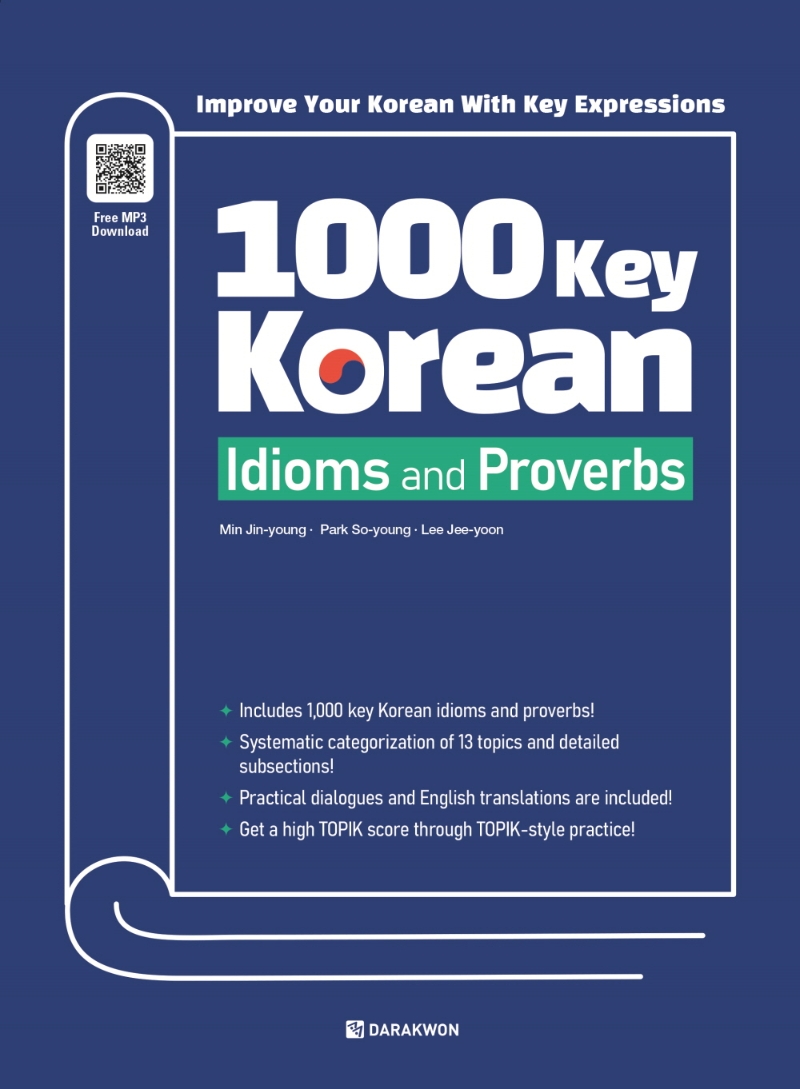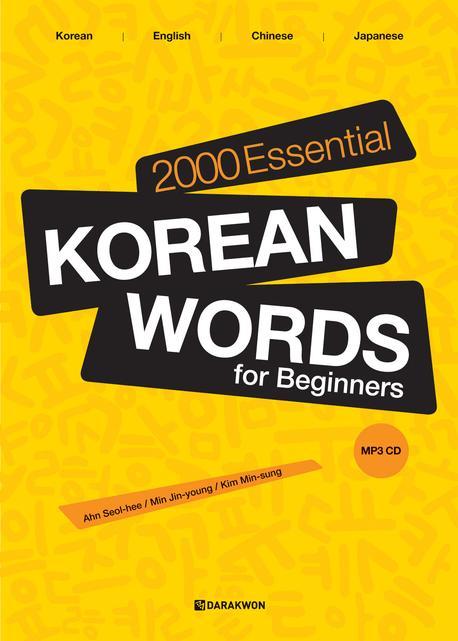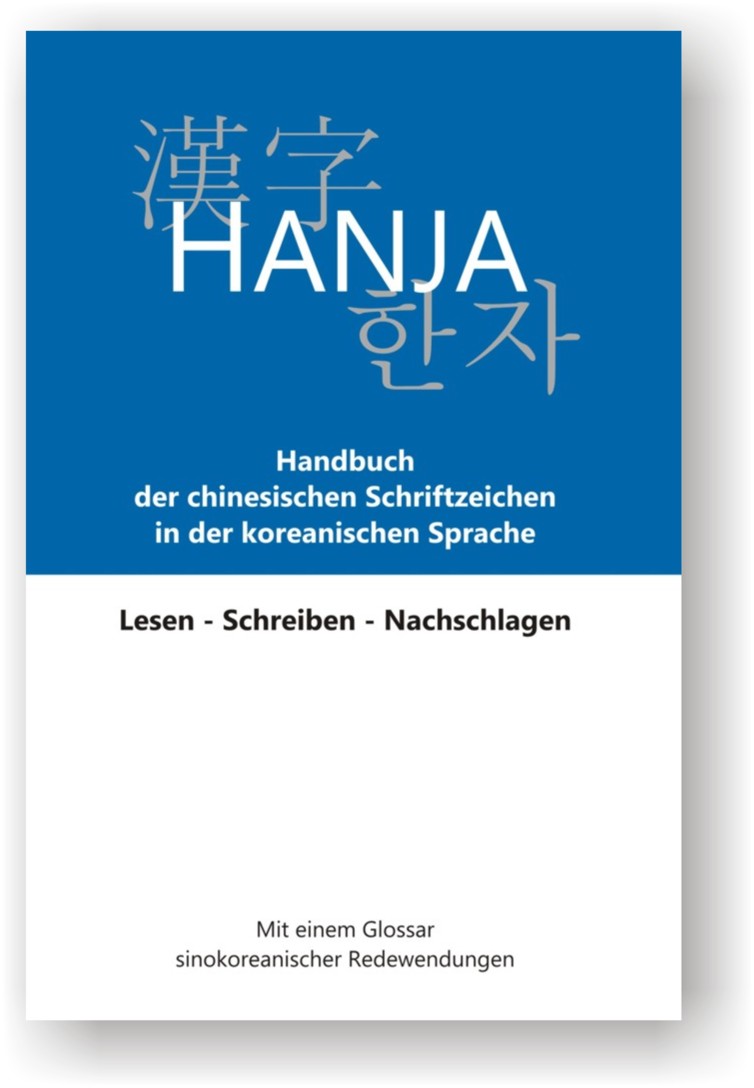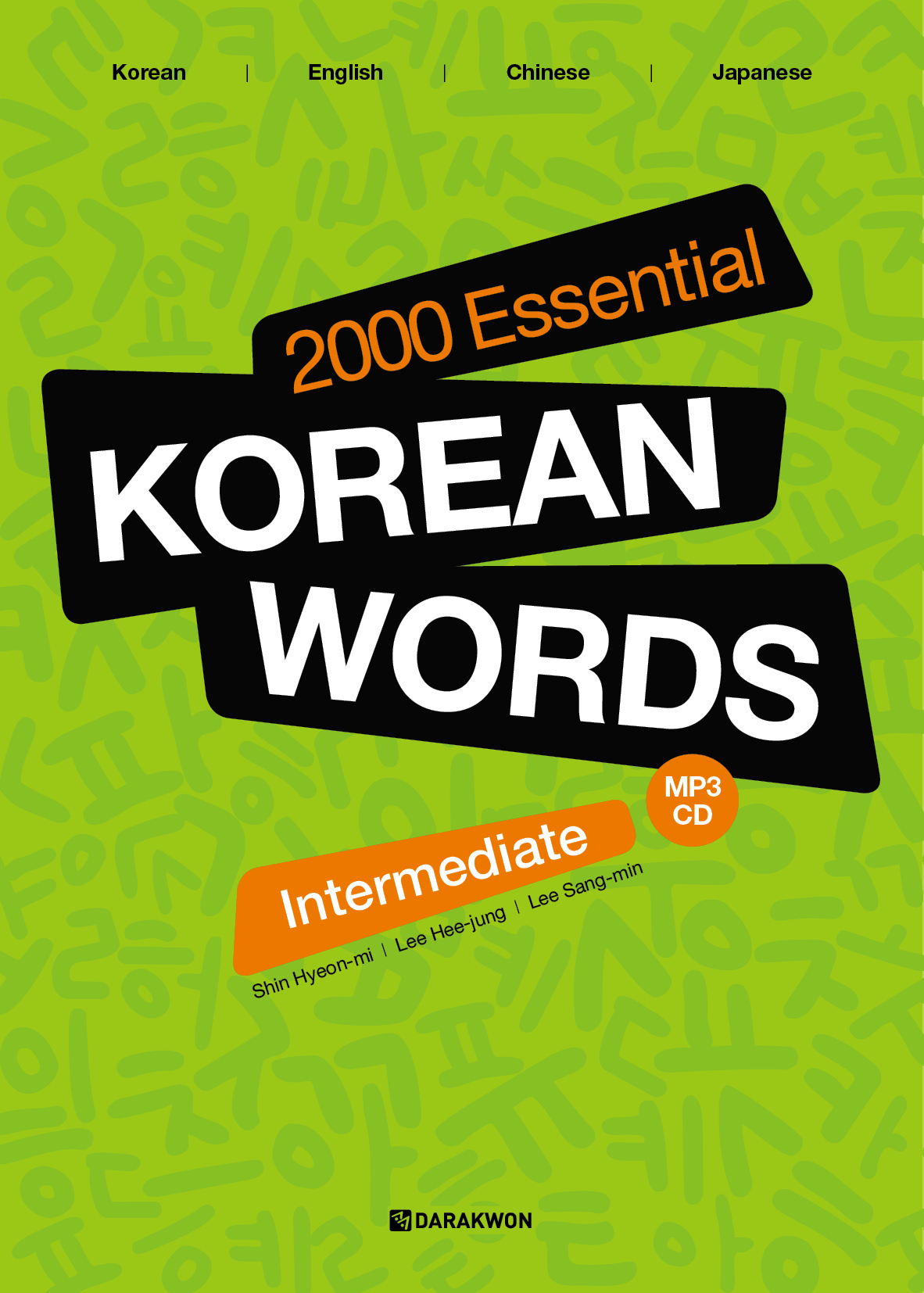1000 Key Korean Idioms and Proverbs Improve Your Korean With Key Expressions
€42.90*
% €49.90* (14.03% saved)-
Art.num./ISBN: 9788927732952
-
Publisher: Darakwon
-
number of pages: 464
-
binding: Softcover
-
Year: 2022
-
Language: English, Korean
-
Media type: Book + Free MP3 Download
In stock. Ready to ship within 1-3 working days
Product information "1000 Key Korean Idioms and Proverbs"
Download Free Audio Files here
This book was designed to present Korean idioms and proverbs in the form of a dictionary to enable foreign students learning Korean to use these expressions in everyday conversation. Idioms and proverbs also appear as important expressions in TOPIK questions, and they are highly useful in everyday life. In this book, 1,000 idioms and proverbs that were selected according to frequency have been divided into 13 major themes and sub-topics to be studied. Vivid example sentences utilizing each expression are presented in a conversational format, and English translations and audio recordings are also provided to enhance students’ understanding. Using “Confirmation Questions” and “Idioms and Proverbs Seen in TOPIK Questions” in the appendix, students can check their level of understanding and identify how idioms and proverbs are mainly used in TOPIK reading questions, so this book can also be highly useful for preparing for the TOPIK exam.
▪ 1,000 carefully selected key Korean idioms and proverbs!
This book contains a total of 1,000 entries that include expressions with high frequency of use and great educational effectiveness based on five major sources. Both Korean and English translations explaining the meaning of each entry are included, and synonyms, origins, and additional explanations are also provided to increase students’ understanding of each expression.
▪ Study by subject using 13 systematically categorized major themes and sub-topics!
1,000 expressions were categorized and sorted into 13 major themes, and the major themes were then divided into a total of 56 sub-topics so students could efficiently learn the expressions by grouping them by subject. Confirmation questions are provided in the appendix so students can check that they have mastered the expressions in each sub-topic and so they can review and self-evaluate.
▪ English translations and audio files of practical dialogues provided!
Sample dialogues utilizing each expression are provided along with English translations so students can understand how each expression is used in actual conversations in context. In addition, audio files recorded by professional voice actors are provided through QR codes so students can master the correct pronunciation and intonation all at once.
▪ Obtain a high score on the TOPIK exam through TOPIK-style practice questions in the appendix!
Using TOPIK-style practice questions in the appendix, students can check how the idioms and proverbs they have learned are presented in TOPIK reading questions. After studying the major themes, students can solve TOPIK-style questions to review the content they have learned while also completing adequate practice to achieve a high score on the TOPIK exam.
Contents
머리말 Preface 004
이 책의 구성 및 활용 How to use this book 006
목차 Table of Contents 010
1장 감정·정신 Emotions and Senses
1 감동·감탄 Being Moved and Admiration 014
2 걱정·고민 Worries and Troubles 018
3 고통 Pain 025
4 관심 Interest 031
5 불만·분노 Dissatisfaction and Anger 039
6 불안·초조 Anxiety and Nervousness 046
7 안도 Relief 053
8 욕심·실망 Greed and Disappointment 059
9 정신 상태 State of Mind 064
2장 소문·평판 Rumors and Reputation
1 간섭·참견 Interference and Meddling 070
2 긍정적 평판 Positive Reputation 078
3 부정적 평판 Negative Reputation 082
3장 태도 Attitude
1 겸손·거만 Humility and Arrogance 092
2 선택 Choices 096
3 의지 Will 103
4장 행동 Actions
1 대책 Countermeasures 112
2 반응 Reactions 117
3 방해 Obstructions 123
4 소극적 행동 Passive Behavior 127
5 적극적 행동 Active Behavior 133
5장 언어 Language
1 과장 Exaggeration 142
2 말버릇 Way of Speaking 148
3 행위 Action 154
6장 조언·훈계 Advice and Discipline
1 권고·충고 Recommendations and Advice 164
2 조롱 Ridicule 173
3 핀잔 Scolding 178
7장 일·생활 Work and Lifestyle
1 사회생활 Social Life 186
2 속성 Attributes 191
3 실행 Implementation 198
4 의식주 Life Necessities 206
5 종결 Termination 213
8장 경제 활동 Economic Activity
1 손익·소비 Profit & Loss and Consumption 220
2 형편 Circumstances 226
9장 관계 Relationships
1 갈등·대립 Conflict and Opposition 234
2 대우 Treatment 243
3 사교·친교 Social Interactions and Friendships 249
4 사랑·정 Love and Affection 256
5 소통·협력 Communication and Cooperation 262
10장 상황·상태 Situations and Conditions
1 결과 Results 268
2 곤란 Hardships 273
3 문제·문제 해결 Problems and Problem Solving 280
4 분위기·여건 Atmosphere and Conditions 284
5 시간·거리 Time and Distance 293
6 흥미 Excitement 297
11장 판단 Judgment
1 변별 Discrimination 304
2 신체 기관 Bodily Organs 311
3 외모·외형 Appearance and Looks 317
4 인지·인식 Perception and Awareness 323
12장 인생 Life
1 성공 Success 334
2 습관·경험 Habits and Experience 339
3 실패 Failure 350
4 운·기회 Luck and Opportunity 356
5 일생 Lifetime 365
13장 이치 Logic
1 인과 Cause and Effect 372
2 자연 Nature 378
3 진리 Truth 385
〈부록 Appendix〉
문화 이야기 Culture Story 394
확인해 봅시다 Let’s Check 407
TOPIK 속 관용 표현과 속담 Idioms and Proverbs in TOPIK 447
정답 Answer 460
색인 Index 465
211, Munbal-ro, Gyeonggi-do
10883 Paju-si
Korea (Republic of)
Prinzenweg 10
93047 Regensburg
Germany
Login




